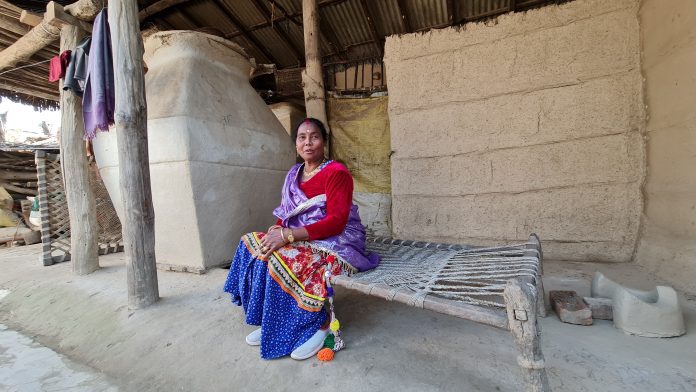
Growing privatization of public sector units during the current government is giving sleepless nights to the people belonging to the Tharu tribe in Uttar Pradesh.
A Tripathi | TwoCircles.net
UTTAR PRADESH — On the Indo-Nepal border in the Lakhimpur Kheri district of Uttar Pradesh lies a tribal hamlet named Bela Parsua. The village, inhabited by some 15,000 tribals known as Tharus, may resemble any other village in the district but what makes it different from others is its high literacy and employment rate, with many working in the government sector.
Despite the high employment rate, a growing worry about the privatization of public sector units during the current Bhartiya Janata Party (BJP) governement is unsettling for many Tharus. For these tribals, employment means working in the government sector.
Lakshmi Devi, a Tharu woman and Pradhan (village head) of Bela Parsua, told TwoCircles.net that for the people of her tribe “the only way to bring prosperity to the village and the country is by doing government jobs.”
“We are people of the jungles. We know only this,” Devi, who has been village head of Bela Parsua for the last twenty years, said. She is serving currently serving her fourth term. The village has more than 10,000 voters belonging to the Tharu tribe.
The Tharu people are an ethnic group indigenous to the Terai in southern Nepal and northern India. Tharu people claim to be of Rajput origin. As per the 2011 census, there are around 1.8 lakh Tharus in the Uttar Pradesh and their numbers have only grown. Other than Lakhimpur Kheri, Tharus lives mostly in Pilibhit, Gonda, Balrampur, Gorakhpur, and Baharaich districts of Uttar Pradesh.
The villagers of Bela Parsua credit Devi for bringing change to the village by focusing on education. It started in 2002, the year when Devi was first elected as Pradhan of Bela Parsua. The village was like any other village at that time.
Devi said that there is a story behind why she always gave priority to education, especially girls’ education.
“Back in the nineties, I used to carry all my daughters on a bicycle and used to pedal almost 40 kilometres daily to and fro Chandan Chowki (that was 20 kilometres from her village) where my daughters used to study. I remember I used to ask my children to be calm and quiet while riding to school as we had to cross 19 kilometres of dense forest area, adjacent to Dudhwa forest reserve, where wildlife was in abundance. Those were the days. By the time I was elected as village head, I had understood what my village wants and hence I immediately began working on children’s education,” recollects Devi, whose four daughters also work in the state government.
Devi said that due to lack of funds and other ‘political reasons’ she couldn’t bring much change to the village’s infrastructure but her motivational speeches and bal-panchayats (children meetings) motivated children of the village to opt for working in the government sector.
“A village head is a small post to bring change to a village. However, I utilized my post for motivating children and the villagers. I was fortunate enough that my motivational talks changed the mindset of my co-villagers who started giving preference to studies. But I doubt if it will work anymore as there will be no government jobs if the situation remains the same,” she said.
Devi said the the present scenario (of privatization) is worrisome.
Tharus believe that the privatization trend will push the Tharus off the mainstream and will ruin the future of the new generation.
“Indeed, the fast privatization which is going on is a worrisome trend. Though there are private jobs also but we don’t believe in them,” said Devi’s son Ranjana Katharia, who has served as Assistant Review Officer (ARO) at the state Secretariat.
Katharia said the tribal people from the village “only prefer government jobs as a career option.”
“This mindset is tough to change,” he said.
Suman Verma, a youth hailing from Kadiya Danga area of Tharu areas blamed the current governement for the privatization. “Be it Railways, BSNL, Air India, Airports, Banks etc, the way the government is on a privatization spree, we doubt that there will be any government jobs left for us in near future,” Verma said.
The prevailing sentiment among the villagers is that they have worked hard to become part of the mainstream by working in government sector. In fact, more than 22 employees at the state secretariat hail from Bela Parsua. Other than the state secretariat, Tharus from the village work at other government departments, including the National Security Guard (NSG)—an elite counter-terrorism unit of India, Seema Suraksha Bal (SSB), Police, Revenue Department, Health Department, and Chief Development Officer’s office etc. With growing privatization, Tharu people fear this will change.
Locals expressed fear that the way public sectors are being privatized, they doubt that the coming generation will ever come out of the jungles. “Government should consider the issue of Tharus, whose way of life is working in the government sector,” a local added.

